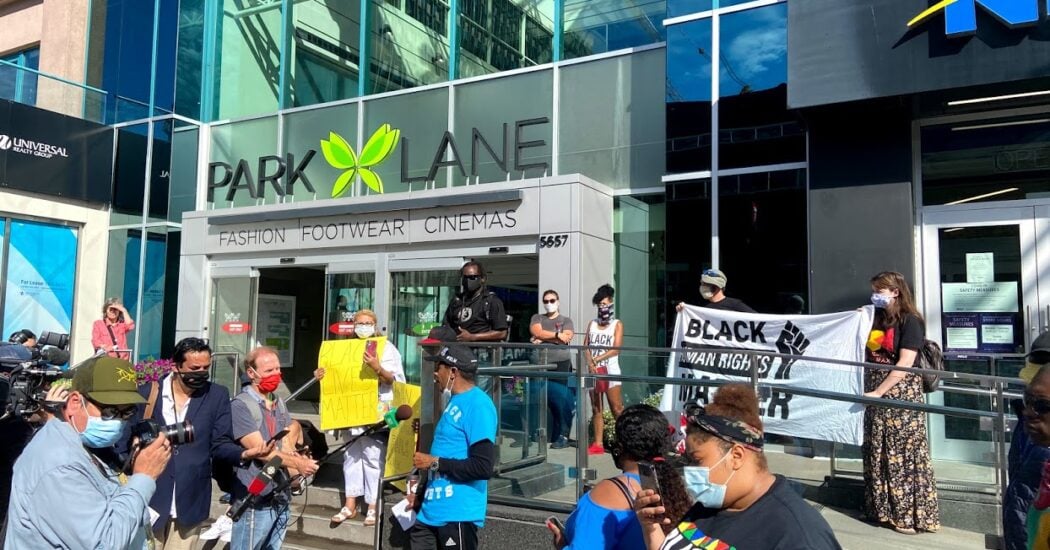
KJIPUKTUK (Halifax) – Since our Black Human Rights Matter rally on August 21, 2020, in front of the offices of the Nova Scotia Human Rights Commission (NSHRC) on Spring Garden Road in Halifax, I have personally been contacted by 32 African Nova Scotians who give the Commission a failing grade.
See also: Black human rights matter: Rally calls for shake-up of the Nova Scotia Human Rights Commission
They tell me that after filing a complaint there is little or no follow-up in a reasonable time, complaints have been misplaced, no one is assigned to investigate their complaint, complaints are dismissed based on time constraints, insensitivity and apparent bias from some investigators and intake workers and the list goes on.
Some of the surnames of these individuals that have filed complaints or have had their complaints dismissed include Beals, Fraser, Francis, Tynes, Jones, Carvery, Desmond, Borden, Jackson, Reddick, Medley, Smith, Williams, Grant, Brown, Parsons, Dorrington, Johnson, Bundy, Simmonds, and MacLean, etc.
I strongly believe there needs to be an internal audit/investigation into the NSHRC by the Department of Justice or some outside group that’s not part of government.
Equally, lawyers with expertise in class action lawsuits should look into the possible certification of a lawsuit, and persons with complaints with the NSHRC should send letters of to the current Minister of Justice, the Civil Liberties Association of Canada, the Race Relations Foundation of Canada, the United Nations Committee on Human Rights, the Federal Justice Minister of Justice/Government of Canada, provincial and federal opposition parties, etc.
Enough is enough; this system is failing People of Color, especially African Nova Scotians.
It’s the beginning of 2021, and Black Lives Matter, Black Human Rights Matter, Black Voices Matter, Black Minds Matter, Black Votes Matter, Black Children Matter, Black Families Matter, Black Ambitions Matter, Black Self Esteem Matters, Black Love Matters, Black Heritage Matters, Black Lineage Matters, Black Businesses Matter, Black Emancipation Matter, Black Traditions Matter, Black Histories Matter, Black Reparations Matter, Black Spirituality Matters, Black People Matter, Black Liberation Matters and Justice for Black People Matter and the list goes on. The truth is that if the NSHRC is not a proactive part of the solution, it becomes one more obstacle in our struggle.
In Nova Scotia, we (African Nova Scotians) fought for and now have the Nova Scotian Human Rights Commission (NSHRC). The mandate of this government agency is “a commitment to actively engage and work with all Nova Scotians and our diverse communities to address issues of discrimination by effectively: advancing equity and dignity, fostering positive and respectful relationships, and protecting human rights.”
These days, and over the years, it seems the NSHRC has fallen short. Businesses, employers, government departments and agencies and individuals seemed almost afraid of the Commission, now not so much.
The legislation governing the Nova Scotia Human Rights Commission must truly be updated to give more power to hold those responsible for acts of racism and injustice. Equally, members of the Commission must be given updated training on the application of the various pieces of legislation.
When the late George McCurdy was Executive Director of the NSHRC, attitudes started to change, mutual respect started to develop and human dignity seemed enhanced. That’s no longer the case. Too many human rights offenders are given no penalty for the pain and suffering they caused others.
Human rights legislation must deter in the strictest way possible in order to send a message, promote justice, equality, human dignity, compassion and respect. Cases before the commission should never be dismissed on a whim. If individuals responsible for sexual assault and murder are held responsible years after their crimes, them human rights violators should also have to account regardless of how long ago it happened. Many African Nova Scotians have said that the NSHRC have turned a blind eye to the physical and emotional pain and suffering they have endured and this only serves to add insult to injury, while increasing pain and suffering
It is my belief that over the years the NSHRC in their own words “dropped the ball.”
Heavy criticism can be levelled against the NSHRC and its apparent limited knowledge of the history and historical racism that African Nova Scotians have endured. This apparent lack of knowledge and awareness makes way for insensitivity and therefore bias.
Many African Nova Scotians and others say the long waits are like waiting for five hours at a local hospital only to be told your condition does not warrant being seen by a doctor.
It would appear the Nova Scotia Human Rights Commission is in need of additional resources. These resources could come from defunding police.
For example, in August 2017, a United Nations working group raised serious concerns regarding ongoing systemic discrimination faced by people of African descent in Nova Scotia. The UN Working Group of Experts on People of African Descent presented its report to the UN Human Rights Council on September 25, 2017, in Geneva.
The working group stated that “it was deeply concerned by the structural racism that lies at the core of many Canadian institutions and the systemic anti-Black racism that continues to have a negative impact on the human rights situation of African Canadians. Canada’s history of enslavement, racial segregation and marginalization of African Canadians has left a legacy of anti-Black racism, which must be addressed in partnership with the affected communities. African Nova Scotians make up the largest racially visible group in Nova Scotia.”
I believe the following steps are necessary for African Nova Scotians who seek redress and positive change,
1) Amend the Nova Scotia Human Rights Act
2) Most intake workers at the NSHRC should have diverse backgrounds.
3) Communities should be proactively engaged through consultation and information sessions.
4) Time period in which to file a complaint must be changed to at least three years… etc.
When one is discriminated against based on race, mental health, disability, orientation, age, income, immigrant status, etc., and when a complaint is filed Nova Scotians expect due diligence,
Raymond Sheppard
BLACK HUMAN RIGHTS MATTER
See also: Equity Watch calls for a completely revamped Human Rights Commission
With a special thanks to our generous donors who make publication of the Nova Scotia Advocate possible.
Subscribe to the Nova Scotia Advocate weekly digest and never miss an article again. It’s free!



